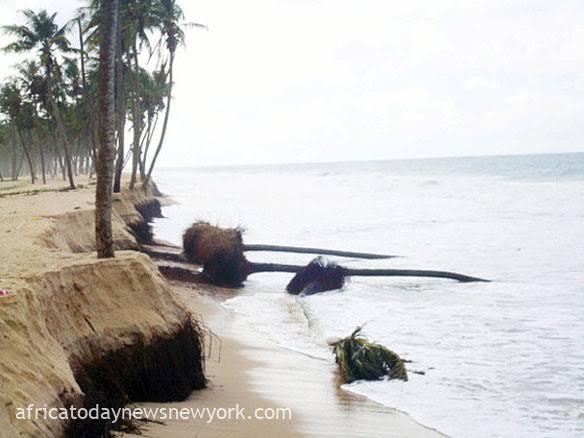The Lagos State Government is actively pursuing the implementation of cutting-edge groyne technology to safeguard the coastline communities in Lagos State, mitigating the looming threat of coastal erosion and preventing their disappearance.
Yacoob Alebiosu, Commissioner for Waterfront and Development, outlined the state’s strategy to deploy groynes but emphasized the financial challenge, underscoring the imperative for assistance from the Federal Government and private stakeholders.
A groyne serves as a protective barrier, extending into the sea to combat the erosion of sand and stones from the beach, thereby maintaining its integrity.
Reports indicate that coastal erosion has taken a toll on several communities in the Ibeju Lekki area of the state, including Idotun, Origanrigan, Olomowewe, Itoke, and Asoroko, causing significant damage.
Commissioner Yacoob Alebiosu, in a media interaction, discussed the adverse impacts of erosion on communities and underscored the imperative of leveraging new technological advancements as part of the state’s holistic strategy to safeguard beaches and shorelines through enhanced coastal management initiatives.
Alebiosun said, “We are looking at reclamation and also protecting what is left of these villages, though it is very expensive to do so. We have some groynes at the moment around Okunde; that is the Great Wall.
“We want to block the groynes to relieve the pressure in that area. But we’d need to move from Alpha Beach to Ibeju Lekki, and that is about a 42-kilometre stretch that will require about 105 groynes to put in place.
“More than a year ago, precisely in February, to put up a groyne is about N12bn. The total stretch of the coastline in Lagos is about 180km, which is huge. So if we have to cater to the whole stretch, do your math, but we have to continue to work at it because we need to protect the ancestral land of these people, and for some, it is their means of livelihood.
He mentioned that they were not solely considering groynes but also exploring replenishment strategies, similar to those practiced in the Netherlands. He emphasized the need for a long-term approach and urged the Federal Government and other private entities to collaborate in protecting the coastline.
